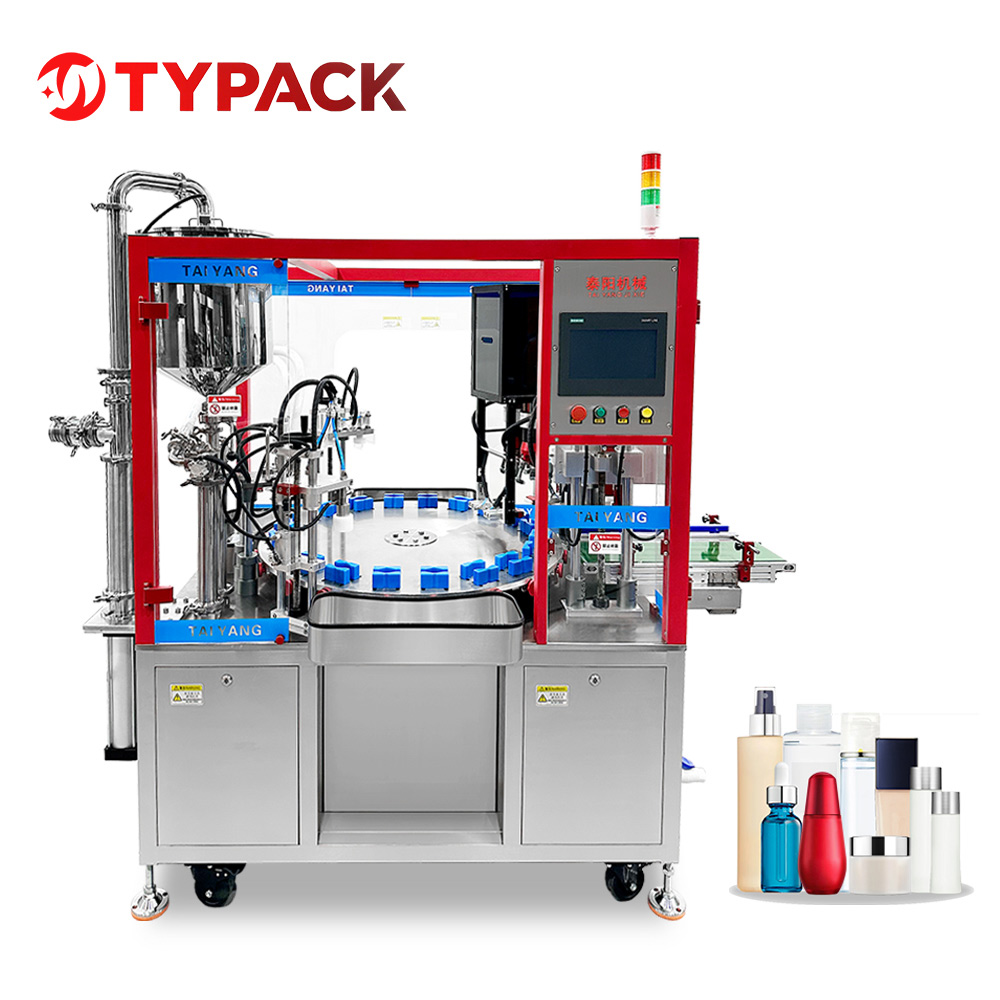Why choose Cream Filling Machine?
2025-09-01
In the fast-paced world of manufacturing, the demand for precision and efficiency is paramount. A cream filling machine stands at the forefront of this need, offering solutions that cater to various industries, including cosmetics, pharmaceuticals, and food production.
Understanding Cream Filling Machines
A cream filling machine is an automated device designed to dispense precise amounts of cream-like substances into containers. These machines are essential in industries where consistency and hygiene are critical. They ensure that each container receives an accurate volume of product, minimizing waste and maintaining quality standards.
Key Specifications of Cream Filling Machines
To appreciate the capabilities of cream filling machines, it's essential to examine their technical parameters. Below is a detailed overview:
| Feature | Specification |
|---|---|
| Filling Range | 5 ml to 5000 ml |
| Filling Accuracy | ±0.5% to ±1% |
| Filling Speed | 10 to 100 strokes per minute, depending on model and viscosity |
| Material Contact Parts | Stainless Steel 304 or 316L (GMP compliant) |
| Power Supply | 220V, 50Hz or 110V, 60Hz (depending on region) |
| Air Pressure | 0.4 to 0.6 MPa (for pneumatic models) |
| Control System | PLC with HMI (for automated models) |
| Automation Level | Manual, Semi-automatic, Fully automatic |
| Suitable Products | Creams, gels, lotions, pastes, ointments |
| Applications | Cosmetics, pharmaceuticals, food industry, personal care products |
These specifications highlight the versatility and precision that cream filling machines bring to production lines.
How Do Cream Filling Machines Operate?
Cream filling machines operate based on the type of mechanism they employ. Here's an overview of the common types:
Piston Filling Machines
Ideal for high-viscosity products like creams and gels, piston filling machines use a piston to draw the product into a cylinder and then dispense it into containers. This method ensures accurate and consistent fills, making it suitable for products requiring precise dosing.
Peristaltic Filling Machines
These machines are suitable for low-viscosity products and operate by compressing and releasing a tube to move the product into containers. They are particularly beneficial for products sensitive to contamination, as the product does not come into contact with the machine components.
Vacuum Filling Machines
Vacuum filling machines are used for products that are foamy or have volatile components. They work by creating a vacuum in the container, allowing the product to be drawn in without introducing air, thus preserving the product's integrity.
Gravity Filling Machines
Suitable for free-flowing liquids, gravity filling machines rely on the force of gravity to dispense the product into containers. While not ideal for creams, they are efficient for thinner liquids.
Each type of machine is designed to handle specific product characteristics, ensuring optimal performance and product quality.
Common Questions About Cream Filling Machines
Q1: What factors should I consider when choosing a cream filling machine?
A1: When selecting a cream filling machine, consider the following:
-
Product Viscosity: High-viscosity products require machines with robust mechanisms like piston fillers.
-
Container Size and Shape: Ensure the machine can accommodate the dimensions and design of your containers.
-
Production Speed: Match the machine's filling speed with your production requirements.
-
Automation Level: Decide between manual, semi-automatic, or fully automatic machines based on your operational needs.
-
Compliance Standards: Ensure the machine meets industry standards such as GMP for hygiene and safety.
Q2: How do I maintain a cream filling machine?
A2: Regular maintenance is crucial for optimal performance:
-
Daily Cleaning: Clean all product contact parts to prevent contamination.
-
Lubrication: Lubricate moving parts as per the manufacturer's guidelines to reduce wear.
-
Inspection: Regularly inspect components for signs of wear or damage and replace as necessary.
-
Calibration: Periodically calibrate the machine to ensure filling accuracy.
-
Training: Ensure operators are trained in proper handling and troubleshooting procedures.
Q3: Can a cream filling machine handle different product formulations?
A3: Yes, many modern cream filling machines are versatile and can handle a range of formulations, including creams, gels, and pastes. Adjustments to settings like filling volume and speed can accommodate different product characteristics.
Choosing the Right Cream Filling Machine
Selecting the appropriate cream filling machine depends on several factors:
-
Product Characteristics: Understand the viscosity and composition of your product to choose a compatible machine type.
-
Production Volume: Match the machine's capacity with your production needs to ensure efficiency.
-
Budget: Consider the total cost of ownership, including purchase price, maintenance, and operational costs.
-
Space Availability: Ensure the machine fits within your production area without hindering workflow.
-
Support and Service: Choose a supplier that offers reliable customer support and service options.
Conclusion
Cream filling machines are indispensable in industries where precision and efficiency are paramount. By understanding their specifications, operational mechanisms, and addressing common queries, businesses can make informed decisions when selecting a machine that aligns with their production needs.
For businesses seeking reliable and high-quality cream filling solutions, Taiyang offers a range of machines designed to meet diverse requirements. Their commitment to innovation and customer satisfaction ensures that you receive equipment that enhances your production capabilities.
To learn more about our cream filling machines and how they can benefit your production line, please reach out to us. Our team is ready to assist you in selecting the perfect solution tailored to your needs.





